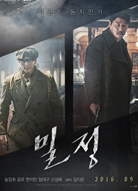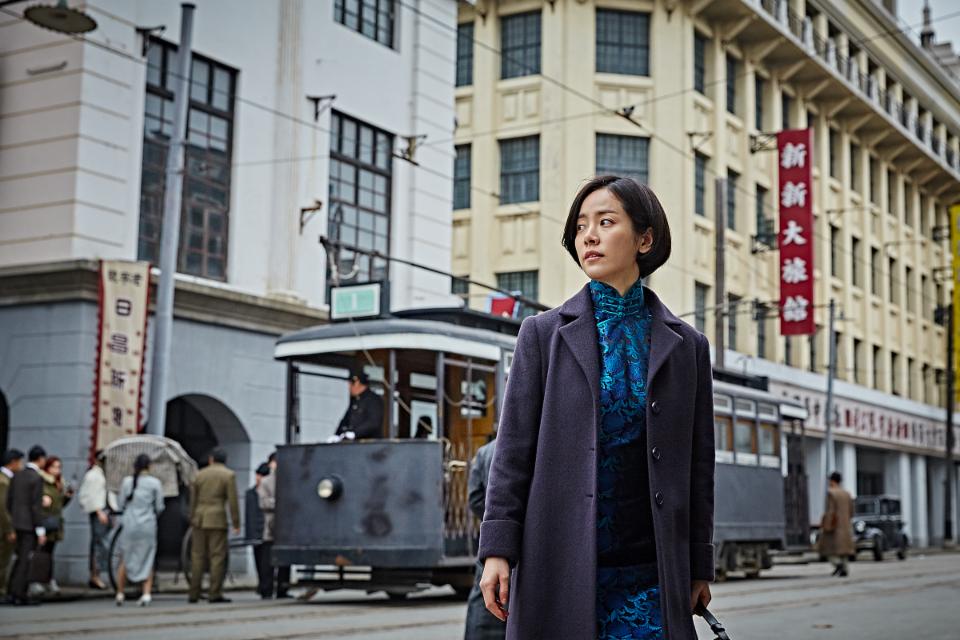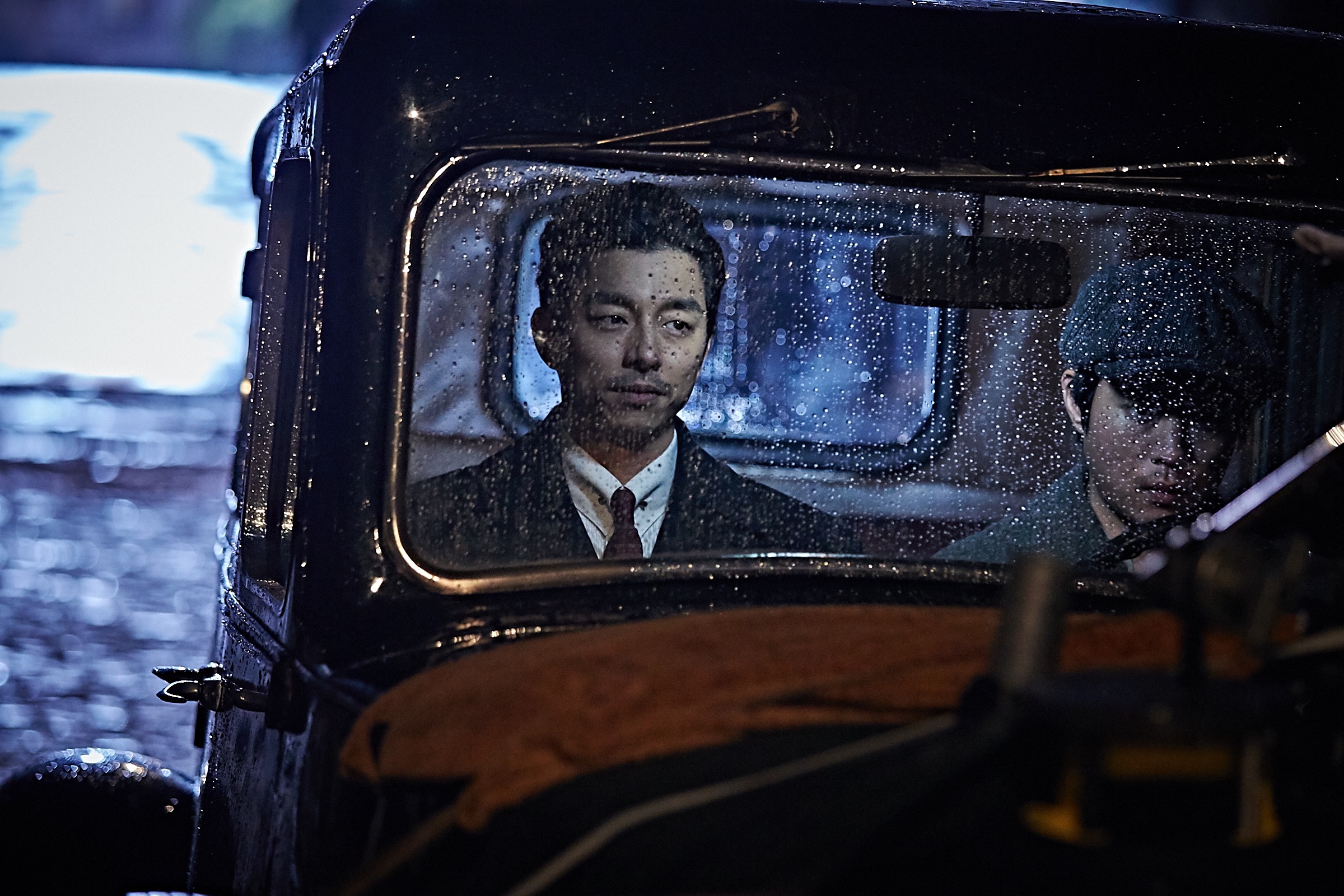Review: South Korea's Oscar Submission "The Age of Shadows"
 Friday, October 28, 2016 at 11:00AM
Friday, October 28, 2016 at 11:00AM  Tim here. Age of Shadows is currently making its way around the U.S. art house circuit, giving Americans our change to catch up with one of the biggest hits at the Korean box office this year. It's a historical spy thriller, set during a period of time that I suspect most of us English-speakers haven't thought about much, or at all: the stretch of time from 1910 to the end of World War II when Korea was occupied by Japan.
Tim here. Age of Shadows is currently making its way around the U.S. art house circuit, giving Americans our change to catch up with one of the biggest hits at the Korean box office this year. It's a historical spy thriller, set during a period of time that I suspect most of us English-speakers haven't thought about much, or at all: the stretch of time from 1910 to the end of World War II when Korea was occupied by Japan.
The film, set in the 1920s, takes as its subject the Korean resistance to Japanese rule, and follows the career of a double agent named Lee Jung-chool (Korean superstar Song Kang-ho), a Korean-born police captain operating under strict Japanese control...
He's been hunting down members of the resistance, a job that begins weighing down on him more than usual when his latest mission results in the death of a childhood acquaintance. This puts him in a delicate psychological state, and he ends up sucked into the sphere of the resistance: paired with partner Kim Woo-jin (Gong Yoo), Lee finds himself caught without loyalties or a country, and uncertain for most of the movie where he'll end up.

It's not, in other words, the newest thing under the sun. The divided loyalties of traitors who want to be resistance fighters is a chestnut at least as old as the 1935 IRA thriller The Informer, and the lengthy passages of The Age of Shadows which set Lee's moral crisis to the side to focus on the meticulous planning and constant wariness of the resistance is barely anew fresher. It's not just in title that the film resembles Jean-Pierre Melville's stellar French Resistance epic Army of Shadows. The familial resemblances extend all the way down to Inglourious Basterds, whose fiery climax has distinct echoes in a more than slightly Tarantinoesque set piece staged against the endless crescendo of Ravel's "Bolero."
The real question, then, is whether all of this generic familiarity hurts The Age of Shadows, and I'd be inclined to say that it really doesn't. For one thing, the Korean resistance to Japanese occupation has the benefit of being relatively untraveled ground for Western movie audiences. For another, the film is just really terrifically well-made. It's the latest swerve for direct Kim Jee-woon, who has among his credits the serial killer character drama I Saw the Devil and the farcical Eastern Western The Good, the Bad and the Weird, among other far-flung genre exercises. Just about the only thing that connects Kim's filmography is that everything he makes is eminently solid craftsmanship, buoyed by intense energy and airtight pacing (The Age of Shadows is 140 minutes long, and they fly by). This newest film isn't his most exciting, by any means, but it might well be his most handsome: everything from the appropriately shadowy cinematography to the detailed, lush costumes evokes the spirit of the 1920s with the dreamy presence of the best period pieces.

The film is also blessed to boast two outstanding performances from Song and Gong. The former gets the showier role, playing a man wracked by guilt and nerves, and haunted in every movement by the obvious suspicion that he might very well turn out to be kind of a bad guy. But Gong might even still be the more impressive, doing as much with less material. Near the end of the film, he gets to wrap up the film's major arcs with a slowly-developing half-smile that easily counts among the best acting beats I've seen in any film in 2016.
These two actors aren't by any means alone in bringing a great deal to the film: I was particularly taken by Han Ji-man's role as the de rigueur glamorous woman who's also a master spy, but who manages to redeem that hoary stock type by underplaying it. Still, there's no doubt that the film is at its best when it hinges on those two men, and their tense interplay. In fact, The Age of Shadows falls a little bit short of being the great film that their performances imply, or reaching the heights of Kim's best work as a director. The plot is unmistakably gnarled, sometimes intentionally so, as in a final act that's told out of order. But it's not really about the plot, but about the moments of sublime tension strung along it: this is ultimately a film about the tightly-wound energy of being an underground agent. For all its prestigious-looking polish, this is still a Kim Jee-woon film deep down inside: a chain of impressive set pieces that collective give the impression of a narrative more than an actual narrative. Fortunately, the director is good enough at staging those set pieces that the impression turns out to be enough.
Grade: B+
Oscar prospects: Having a name-brand director can't hurt, and the setting and production value are right up the Academy's alley; the splashy violence a bit less so. The big question mark, though, is that South Korea is currently 0-for-27 in its attempts to snag a nomination in the foreign film category, and I'd be hard-pressed to say why this would be the film to break that streak.



Reader Comments (3)
Thanks for covering this. As a Korean American I'm interested to see this movie - I hope it makes it to theaters outside NY and LA.
Watched some Foreign Picture submissions last week:
- "Letters from War" (PORTUGAL): sublime; poetic to hear and black&white beauty to stare at
- "Julieta" (SPAIN): Almodovar is back to Almodovarian movies. Ugarte is splendid and it feels like one of those first studies about women that made Almodovar a european cinema's legend
- "Elle" (FRANCE): Isabelle Huppert show! It's all I can say!
- "Neruda" (CHILE): Pablo Larraín should just keep directing biopics for the rest of his life! Loved it
I would include all these 4 in my Best Foreign Picture ballot for many different reasons. Best Foreign Picture field is so rich, beautiful and fascinating this year!
My wife and I had a chance to watch the movie "The Age of Shadows" in Korean version. We were marveled at its masterly of all essential elements of spy thriller movie PLUS its accurate recreation of historical context of the darkest period for Korean peoples in recent memory. As you may be aware, during the first half of the 20th century, Japan occupied Korean peninsula and Manchuria (which is ancestral homeland of Koreans as well as their nomadic tribe cousin Manchurians since the Chinese population seldom ventures crossing the Great Wall at that time) and their challenge and collusion with the Western Powers ended Manchuria rule of the whole China under Qing Dynasty (1644-1912) planting a seed for Great East Asian War of WWII and Communist revolution in China.
During the colonial rule, many Koreans waged the resistance movement and some of them became outright terrorists assassinating many Japanese officials (incl. four-time Prime Minister Ito Hirobumi) and Korean collaborators in Korea and throughout the Far East. Naturally the Korean collaborators in the worst form were the policemen working for Japanese administration. One of three main characters for the movie was the high rank police official of Korean ethnic whose job was to investigate and expose Korean terrorist network sent to Seoul by its underground headquarter in Shanghai foreigners' colonial zone. He became a reluctant double agent partially by circumstance and eventually the main actor for terrorist plot of bombing the Japanese police headquarter.
This movie is more than a masterpiece of spy thriller in describing his tense mental state caused by his minority complex in work place and his suppressed guilty feeling toward Korean compatriots. Moreover the situation got worsened by the presence of his younger and more eager Korean police official working together, which was deliberately arranged by their cunning Japanese superior, a chief of Japanese police in Seoul. I will regard the movie "The Age of Shadows" as a combination of spy thriller, historical novel and psychological drama and put this work as one of the BEST-EVER spy thrillers along with Carol Reed's The Third Man and John Irvin's make of le Carré 's Tinker, Tailor, Soldier, Spy. And it is is better than Carol Reed's another well-known thriller Odd Man Out. In fact, a very dry touch of this movie is reminiscent of The Third Man and one of the scene in the forest is somewhat resembling the famous the final scene with Joseph Cotton and Baroness Alida Valli.